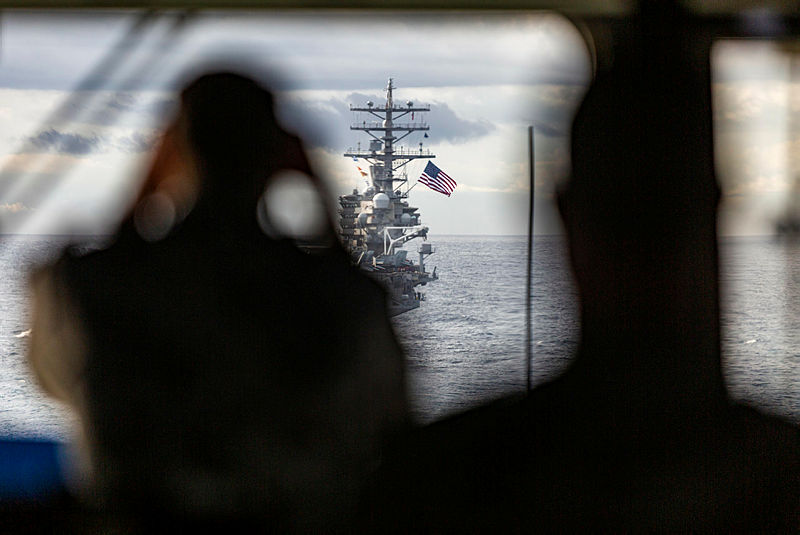The US alliance and defending Australia

The biggest threat to Australia’s alliance with the United States has always been posed by the US—and what it demands or fails to deliver.
Wars have strengthened, not weakened, the alliance. In the Pacific war with Japan, the US was the saviour. We went to war in Korea reaching for what became the formal expression of the alliance—ANZUS. And, clasping the alliance tight, we went to war in Vietnam, Afghanistan and Iraq.
Australia has balanced the twin fears of entrapment and abandonment, and has luxuriated in the comfort of US power.
The new unease confronting Oz strategy is that questions about the US have sharpened as China has loomed ever larger.
The alliance discussion shifts from what the US will or won’t want to do for us, to contemplate what the US is able to do for itself, much less for everyone else. That’s a significant shift in thinking about power in the Indo-Pacific.
The future of the alliance is the starting point for Hugh White’s latest book, How to defend Australia, and the first of a series of ASPI interviews with White. Follow the debate that Hugh White has fuelled in The Strategist’s ‘Defending Australia’ series.
White sets out the alliance dilemmas: Does the US have the power and resolve to remain the major regional power, in the face of China’s campaign to push it out? Under what circumstances would Australia refuse to join the US in a war with China?
White dwells on the serious alliance point that Charles de Gaulle made in an unserious way: ‘Treaties, you see, are like girls and roses; they last while they last.’
The White version of the alliance is not the sentimental ‘100 years of mateship’, but the simple truth that real alliances only function and endure when the benefits justify the costs for both sides:
America has remained our ally for so long because the alliance has cost it very little, and it has helped support America’s leadership in Asia. The further America steps back from regional leadership, the less valuable the alliance will be, while the costs of supporting Australia will grow as Asia becomes more turbulent and our strategic risks increase. The alliance will therefore weaken, and quite possibly disappear, as our alliance with Britain weakened and disappeared. But this time, if that happens, there will be no new ‘great and powerful friend’ to take its place. We will really be on our own.
This is not good news.
The love-what-we’ve-got line from White is to dismiss the ‘big mistake’ of those who regret or resent strategic dependence on the US and would welcome the passing of the alliance.
‘We have been very fortunate to live under America’s protection for so long’, he writes, ‘and we will sorely miss it when it has gone. It would never make sense for Australia to walk away from the alliance—as long as America remained committed to it and had a credible chance of remaining a major power in Asia. But when that is no longer true, we have no choice but to look to the alternatives.’
‘The erosion of America’s position in Asia, and of our alliance with America’, he suggests, ‘may happen quite quickly, but even if it happens slowly we still need to move fast to review our defence policy in response’. As White writes:
Any war with China—especially over an issue like Taiwan—would risk becoming a very big war indeed. Deciding to fight would be nothing like the decision to help invade Iraq or even to fight in Vietnam. It would be more like the decision for war in 1914 or 1939. The war could easily become nuclear, and potentially the worst war in history. Australia could easily be attacked directly. Even if we were not, our country would be altered profoundly. And there is no assurance that our side would win. Indeed, it is not clear what America ‘winning’ a major war with China would mean …
China, for all its faults, is not Nazi Germany, and it is far from clear that containing its ambitions would justify a war on the scale that might be required. So it is wrong to think that we would not have any choice, or that if we did we would most probably choose to fight. There is a real chance that Australia would decide against supporting America in a war with China—even though that would probably cost us our alliance.
Australia enters new territory.
The biggest threat to our alliance with the US now comes from both the US and China. To discuss the alliance and defending Australia, here is the first of my interviews with Hugh White.